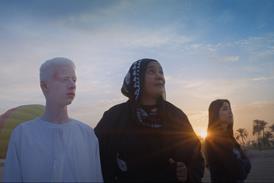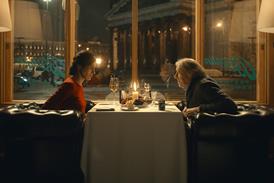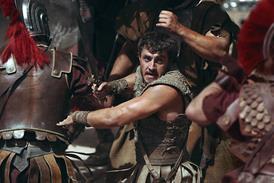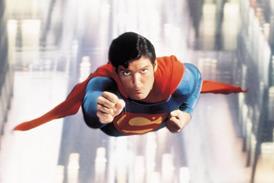Legendary war cameraman, filmmaker and writer won an Oscar in 1968 for his documentary The Anderson Platoon, following American soldiers in Vietnam.
Legendary French war cameraman and filmmaker Pierre Schoendoerffer, whose works include the Oscar-winning documentary The Anderson Platoon, has died at the age of 83.
Having started out on a career with the merchant navy, Schoendoerffer made his first foray into filmmaking as a war cameraman for the French army in Vietnam, then French Indochina, at the height of the First Indochina War between French forces and communist Viet Minh fighters.
While there, he made his first short documentary First Indochina War Rushes and also captured the historic battle of Dien Bien Phu, which led to the surrender of French troops and eventual withdrawal of France from the territory.
Captured by Viet Minh forces on May 1954, Schoendoerffer spent four months in a Viet Minh re-education camp, where he met the Russian documentary maker Roman Karmen, who was shooting the war from a communist perspective.
Schoendoerffer would recount these experiences in his 1992 feature Dien Bien Phu, about an American reporter who finds himself caught up in the battle.
Throughout the late 1950s, Schoendoerffer covered Vietnam as a civilian war reporter-photographer working for several outlets including Paris Match and Time, also stopping off in Taipei, Japan, Hawaii and Hong Kong, where he met writer Joseph Kessel.
Schoendoerffer recounted his Indochina adventures to Kessel and a long-life friendship was sealed. In 1958, Kessel called upon Schoendoerffer to direct his Afghanistan set The Devil’s Pass alongside Jacques Dupont with Raoul Coutard, who would go on to work with Jean Luc Godard, as cinematographer.
It was the first of ten feature films. Most were inspired y by his experiences in war zones and at sea. They included The 317th Platoon (La 137ème Section), about a French platoon caught behind enemy lines during the First Indochina War, which won best screenplay at Cannes in 1965, and the 1973 Drummer Crab (Le Crabe-Tambour), which picked up three Césars.
In 1968, his feature documentary The Anderson Platoon, following a platoon of American soldiers at the height of the Vietnam War in 1966, won an Oscar for best documentary. Oliver Stone cited the work as a source of inspiration and research for his Oscar-winning Platoon.
Screenwriter and director John Milius, meanwhile, cited Schoendoerffer’s 1970 novel Farewell to the King (L’Adieu au roi), about an American soldier turned native in Borneo, as a source of inspiration for the screenplay of Apocalypse Now, and would go on to adapt the work to the big screen in 1989 in a Nick Nolte-starring production.
Schoendoerffer’s last feature, the 2003 Above the Clouds explored the legacy of the First Indochina War through the tale of a French journalist investigating the disappearance of a filmmaker while shooting in Thailand.
In later years, Schoendoerffer devoted himself to writing and since 2001 was also the vice-president of the cinema and audiovisual section of respected French Académie de Beaux-Arts.





















No comments yet